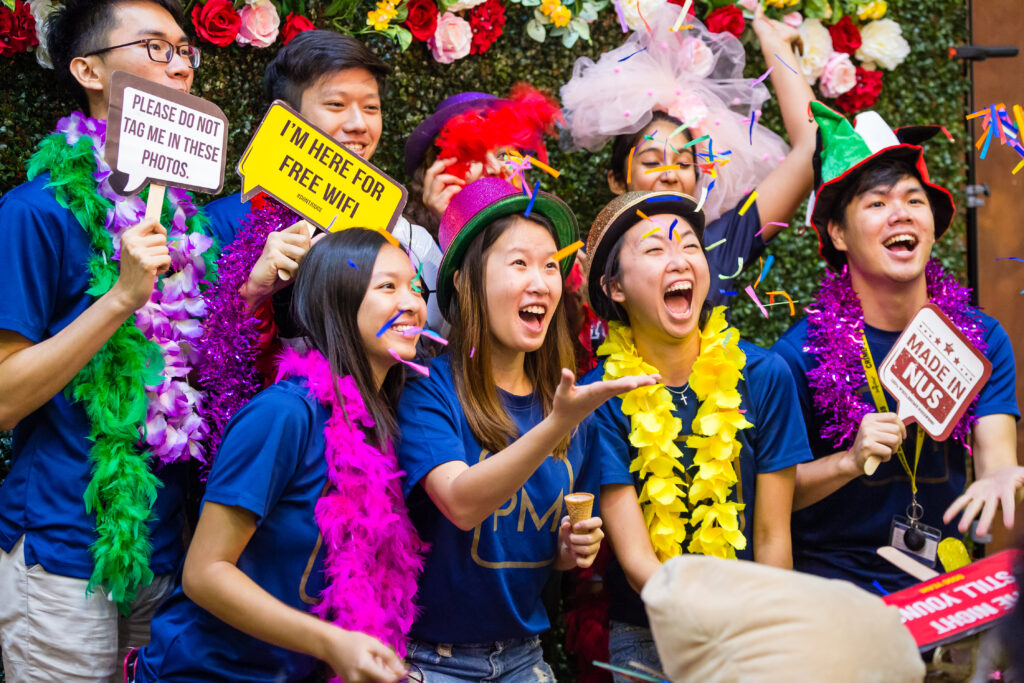Prepare
Welcome to NUS and Singapore
As you start your journey with us, there are some steps to complete before the semester begins.
Registration process
Congratulations on accepting your offer to NUS!
You will receive a registration email from the Office of the University Registrar containing instructions related to registration matters. Details about the registration process can be found in the NUS Registration Guides.
Read the information provided carefully and complete all the steps to start your journey at NUS.
Accommodation options
Do note that from AY24/25 onwards -
- Year 1 Undergraduates will only be eligible for Halls, Houses and Residential Colleges, as these models offer a structured framework to help them ease into University.
- International Year 1 Undergraduates will be prioritised for campus housing, only for the first year. All applications thereafter will be based on merit and past contributions.
The above information is updated on 6 Mar 2024.
Please refer to the most updated information on the Hostel Admission Service (HAS) website, where you can explore your options for on-campus and off-campus housing. Based on your student profile, find out more about the on-campus housing application process here.
Student Pass application
As a requirement of the Singapore government, you must hold a valid Student Pass issued by the Immigration & Checkpoints Authority (ICA) to pursue your studies at NUS.
For queries on your Student Pass, you may also find out more details on this page. This is one of the administrative matters that the Office of the University Registrar advises students in.
Medical examination
Pre-admission medical examination
You are required to undergo a pre-admission medical examination before enrolment.
Medical examination for student pass
You are required to undergo an additional medical screening before the issuance of your Student Pass.
As new student in NUS, the Office of the University Registrar gives information on both types of medical examinations. You may check the NUS University Health Centre website for more information about their medical examination services.
What to bring & what to buy
Here are some useful items you may bring to Singapore:
- Physical cash, or a commonly accepted credit card or e-wallet (to cover your living expenses while deciding on the bank you wish to open an account with)
- Business casual and/or formal wear (for presentation and networking events)
- Your medications and prescriptions
- Cultural Wear (for cultural events)
Refer to the Singapore Customs website for more information about what you can bring into Singapore, and any duty or taxes required.
Also check the Health Sciences Authority website for more information about accessing your medications or medical devices in Singapore.
For many of your day-to-day needs such as groceries, electronics or furniture, feel free to acquire them in Singapore especially if you have a longer course of study.
- Fairprice is a common grocery store chain found in almost every mall, at University Town, and near Kent Ridge MRT station. Fairprice Extra outlets also stock small electronics and basic home furnishing products.
- IKEA is a popular option for home furnishing products located a few bus stops from NUS.
- Neighbourhood Town Centres and shopping malls are available at nearly every MRT station, offering a wide variety of stores such as electronics, fashion, and services.
As a tip, check the furniture that is already afforded to you as part of your on-campus or off-campus housing such as bed, tables, and chairs. Remember to confirm their sizes and dimensions. Furnishing and electronics may not be included in your accommodation but you can consider preloved items from InfiniUse or uNivUS Marketplace.
If you plan to bring electronics from your home country, Singapore uses the power plugs and sockets of Type G. The standard voltage here is 230 V at a frequency of 50 Hz.
Cost of living
Qualifying English Test (QET) & Diagnostic English Test (DET)
Refer to the NUS Registration Guides for more information on both types of tests.
The NUS Centre for English Language Communication conducts these tests and the English Placement Test (EPT).
Important courses to prepare you for higher education
There are two types of important courses in NUS:
- As a new student in NUS, you will learn more about the academic and social culture to facilitate a smooth transition, familiarise with university expectations, and promote personal & intellectual growth. Find out more about the Transition to Higher Education (T.H.E.) programme in the NUSOne First-Year Guide.
Some of these courses are mandatory for you to complete to remain in good standing with the University. Approach the Office of Student Conduct with any queries. - Your Faculty may also have required courses and pre-requisites to higher level courses. Pay special attention to them to avoid unnecessary delays in completing your education. You should approach your Faculty directly with any queries.
NUS Academic Calendar
NUS email & other IT-related matters
By following Registration instructions, you would have activated your NUS-ID.
NUS students are provided with an NUS email. Example: A student’s NUS-ID is in the format e1234567, so the corresponding e-mail format is e1234567@u.nus.edu. You may access your NUS email using the NUS Webmail on an internet browser or using Outlook.
NUS IT Care has a Quick Start Guide for new students to set up basic tools, services, and resources in preparation for your education here. Do set up your NUS Zoom account to participate in Pre-Arrival Connection Programme for new international students!
Useful Resources
Here are some resources that past students have found useful as they prepare for their first semester:
- NUSOne First-Year Guide - Check out NUSOne's First-Year Guide, your one-stop resource to learn more about NUS.
- EduRec - Education Record System (EduRec) is a student administrative system that integrates key activities of your academic life cycle from admission, course registration, finance, and progression to graduation. Read the EduRec 101 Guide prepared by the NUS Student Union.
- CourseReg@EduRec - CourseReg is a system for Undergraduate, Graduate and Exchange Students to register for modules.
- NUSMODS - NUS Modifications is a free timetable builder to plan your lesson schedule & find available tutorial rooms to study in. Read the NUSMods 101 Guide prepared by the NUS Student Union.
- REBOKS - Unwind through sports like squash, tennis, swimming and many more! Find out more about Sports and Recreation facilities in NUS from the University Campus Infrastructure website. Booking of facilities can be done online through the Resource Booking System (REBOKS). Read the guide to REBOKS here.
- NUS Libraries
NUS Libraries has a guide for new students like you. - NUS Information Technology
NUS IT Care has also prepared a Quick Start Guide for new students and a repository of eGuides covering other needs that may arise. - NUS Student Insurance
All full-time matriculated NUS students are subscribed to the university's medical insurance scheme. Find out more from the University Health Centre website here.




